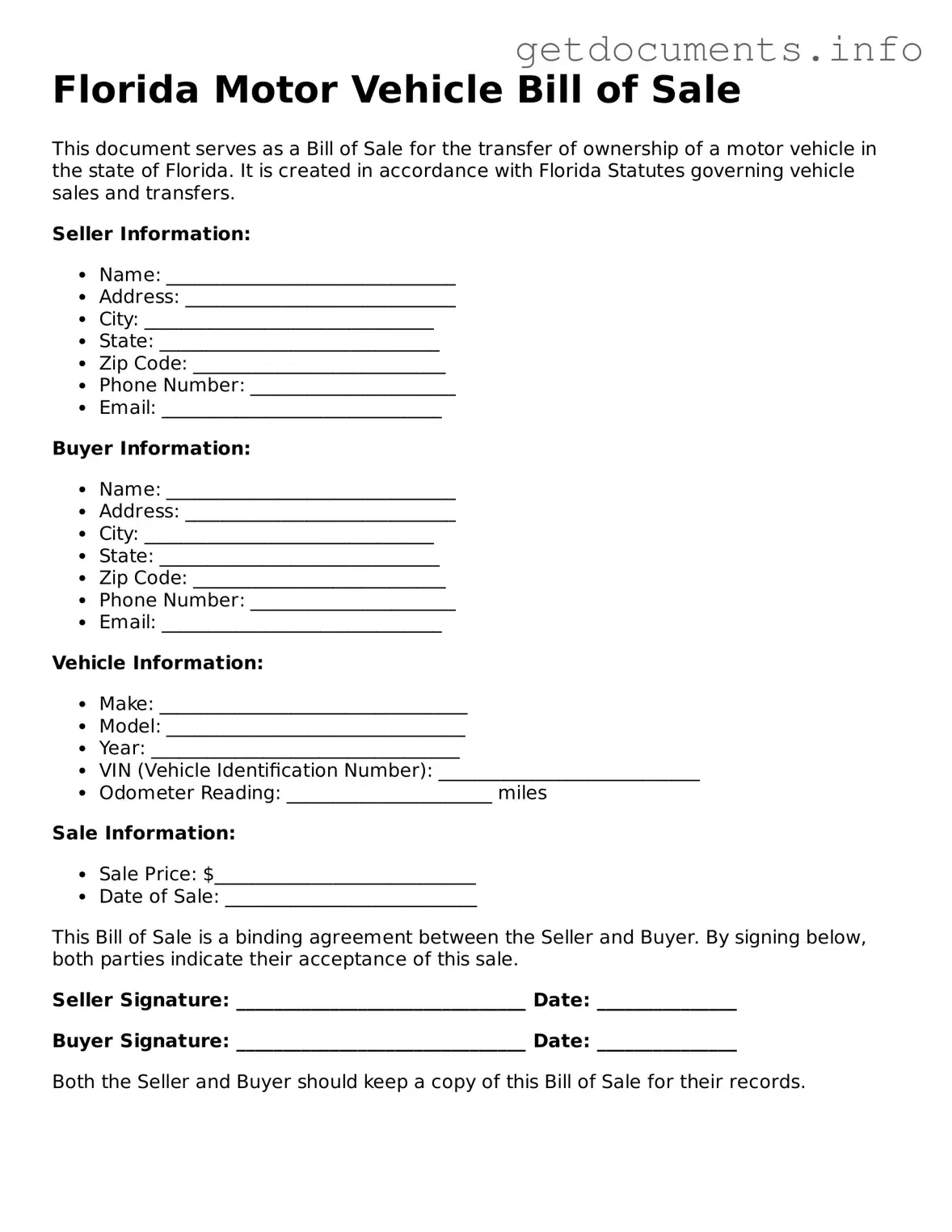Free Motor Vehicle Bill of Sale Template for Florida
The Florida Motor Vehicle Bill of Sale is an important document that serves as proof of the transfer of ownership for a vehicle. This form provides essential details about the transaction, including the buyer, seller, and vehicle information. Understanding its purpose can help ensure a smooth and legally sound transfer process.
Ready to fill out the form? Click the button below to get started!
Access Motor Vehicle Bill of Sale Editor

Free Motor Vehicle Bill of Sale Template for Florida
Access Motor Vehicle Bill of Sale Editor
Got places to be? Complete the form fast
Fill out Motor Vehicle Bill of Sale online and avoid printing or scanning.
Access Motor Vehicle Bill of Sale Editor
or
⇩ PDF File
